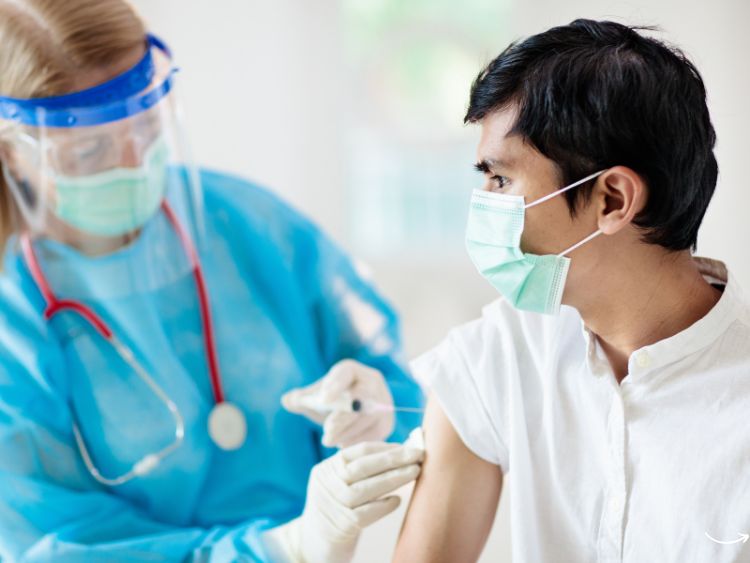In today’s rapidly changing healthcare landscape, the role of nurses has evolved significantly, especially with the growing emphasis on preventive care. One of the most critical aspects of this preventive approach is vaccination. With the increased need for immunization services globally, “vaccination jobs for nurses” have become an essential and rewarding career path. Are you a nurse looking to specialize in vaccinations? Let’s delve into the myriad opportunities available and the pathways to making a significant impact in this field.
Why Consider Vaccination Jobs?
A Crucial Public Health Role
Vaccination jobs for nurses are pivotal in safeguarding public health. Immunizations are essential in preventing the spread of infectious diseases, ensuring community immunity, and protecting vulnerable populations. By specializing in this area, nurses play a direct role in reducing morbidity and mortality rates.
Diverse Work Environments
Nurses specializing in vaccinations can work in various settings, including:
- Hospitals: Administering vaccines in pediatric and adult wards.
- Clinics and Health Centers: Providing routine immunizations and travel vaccines.
- Schools and Universities: Conducting vaccination drives and educating students.
- Public Health Departments: Working on large-scale immunization programs.
- Non-Profit Organizations: Participating in outreach programs in underserved communities.
Professional Growth and Development
Specializing in vaccinations offers numerous opportunities for professional growth. Nurses can:
- Expand Their Skills: Gain expertise in vaccine storage, handling, and administration.
- Stay Updated: Keep abreast of the latest vaccine research and developments.
- Lead Initiatives: Take on leadership roles in immunization programs and campaigns.
Steps to Pursue a Career in Vaccination Nursing
Obtain the Necessary Education
First and foremost, aspiring vaccination nurses must have a nursing degree (Associate Degree in Nursing – ADN or Bachelor of Science in Nursing – BSN). Many employers prefer candidates with a BSN due to the comprehensive training provided.
Gain Relevant Experience
Experience in general nursing practice is crucial. Working in pediatrics, infectious disease units, or community health can provide valuable insights and skills relevant to vaccination jobs.
Specialized Training and Certification
Nurses interested in vaccination jobs should consider additional certifications and training. Courses on vaccine administration, cold chain management, and public health can be beneficial. Organizations like the Centers for Disease Control and Prevention (CDC) and the World Health Organization (WHO) offer training programs and resources.
Stay Updated with Continuing Education
Vaccination guidelines and recommendations frequently change. Nurses should engage in continuing education to stay informed about new vaccines, booster requirements, and emerging infectious diseases.
Job Opportunities in Vaccination Nursing
Hospital Vaccination Programs
Hospitals often have dedicated immunization programs for inpatients and outpatients. Nurses in these roles administer vaccines, monitor patients for adverse reactions, and maintain vaccination records.
Community Health Clinics
Community health clinics are vital in providing immunization services to underserved populations. Nurses working in these settings perform routine vaccinations and participate in public health outreach programs.
School-Based Health Services
Many schools employ nurses to manage immunization records and administer vaccines. This role is crucial in ensuring that students comply with state-mandated vaccination schedules.
Travel Clinics
Nurses in travel clinics provide vaccines to individuals traveling to areas where certain diseases are prevalent. They educate travelers on necessary precautions and manage post-vaccination follow-ups.
Public Health Departments
Public health departments run large-scale vaccination campaigns, especially during outbreaks. Nurses in these departments coordinate and implement immunization programs, ensuring broad community coverage.
Non-Governmental Organizations (NGOs)
NGOs often conduct vaccination drives in remote and underserved areas. Nurses working with these organizations travel to various locations, providing life-saving vaccines and educating communities.
The Impact of Vaccination Nurses on Public Health
Increasing Immunization Rates
Nurses play a critical role in increasing immunization rates by:
- Educating the Public: Providing accurate information about the benefits and safety of vaccines.
- Addressing Vaccine Hesitancy: Engaging in conversations with individuals who are hesitant or refuse vaccinations.
- Ensuring Accessibility: Making vaccines available in diverse settings, from urban clinics to rural outreach programs.
Enhancing Disease Surveillance
Vaccination nurses contribute to disease surveillance by:
- Monitoring Vaccination Coverage: Tracking immunization rates within communities.
- Reporting Adverse Events: Documenting and reporting any side effects or adverse reactions to vaccines.
- Identifying Outbreaks: Recognizing and responding to early signs of disease outbreaks.
FAQs
What qualifications do I need for vaccination jobs for nurses?
To pursue vaccination jobs, you need a nursing degree (ADN or BSN) and relevant experience in healthcare. Additional training in vaccine administration and public health is beneficial.
Can I work part-time as a vaccination nurse?
Yes, many vaccination roles, especially in clinics and community health centers, offer part-time opportunities.
Are there online courses available for vaccine training?
Absolutely! Organizations like the CDC and WHO offer various online courses and resources for vaccine training.
How do vaccination nurses contribute to public health?
Vaccination nurses play a vital role in preventing disease outbreaks, educating the public, and ensuring high immunization rates, ultimately safeguarding community health.
What are the career advancement opportunities in vaccination nursing?
Nurses can advance to leadership roles, such as coordinating immunization programs, or specialize further in fields like epidemiology or public health policy.
Conclusion
Vaccination jobs for nurses offer a fulfilling career path that combines clinical skills with public health impact. Whether you’re working in a hospital, community clinic, school, or NGO, your role as a vaccination nurse is crucial in the fight against infectious diseases. By staying informed and continually developing your skills, you can make a significant difference in global health outcomes.
Authoritative Links
- Centers for Disease Control and Prevention (CDC): www.cdc.gov
- World Health Organization (WHO): www.who.int
- American Nurses Association (ANA): www.nursingworld.org
- Immunization Action Coalition (IAC): www.immunize.org
- National Foundation for Infectious Diseases (NFID): www.nfid.org
By following these guidelines and utilizing the resources provided, nurses can embark on a rewarding career in vaccination, contributing to healthier communities and a safer world.

